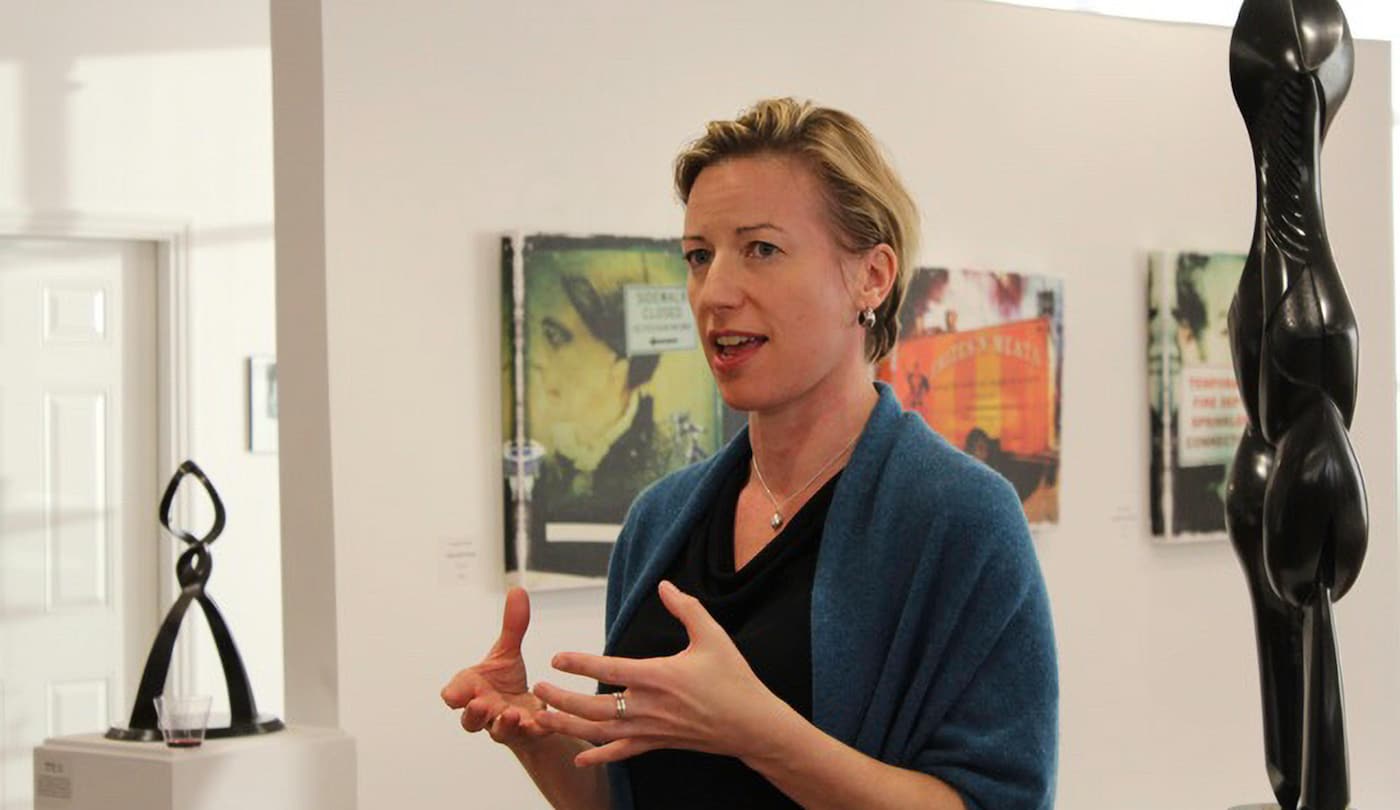“Litigation is not quite as much fun as luge!” laughs four-time Olympian Cameron Myler, while speaking about her career transition. She is joking, though.
An accomplished lawyer and professor at New York University (NYU), Myler believes she brings the same razor-sharp focus to law, teaching and art as she did to her sport while representing the USA at four consecutive Olympic Winter Games, in 1988, 1992, 1994 and 1998. She is one of seven Olympian Artists-in-Residence who have created original artworks for the Beijing 2022 Olympic Agora.
“I am fairly competitive by nature,” she says. “I was in litigation for 10 years, during which time I also represented athletes in eligibility and doping disputes. Towards the end of those 10 years, I realised I wanted to make a greater difference.”
It was around that time that NYU invited Myler to speak on a panel on women in sport, and one thing led to another until she eventually started teaching Olympic sports governance and sports law at the prestigious university.
Myler’s dream of becoming an Olympian began during her very first ride on a luge sled after the 1980 Olympic Winter Games in Lake Placid. She says the sport provided her with the welcome challenge of testing her physical and mental limits. She went on to compete in four Olympic Games, won 11 World Cup medals, was national champion seven times, and had the honour of being elected by her team-mates to carry the American flag at the Opening Ceremony at Lillehammer 1994.
“Carrying the flag was the most profound moment for me,” says Myler. “I felt like I was at the Oscars. It was -28° in Lillehammer when I walked into the Opening Ceremony, but that feeling filled me with warmth; to be picked by all of my team-mates to carry the flag, even though some of the other nominees were multiple medal winners. I felt like I was representing the Olympic Movement, not just only Team USA. It was about so much more than just the competition. It was a real honour.”
As an athlete, Myler embraced the Olympic values of excellence, friendship and respect, which have continued to guide her professional and personal life. After retiring from sport, she attended law school, and it was during her undergrad studies at Dartmouth that she truly discovered art.
“Art has been a thread that has been part of my life always. At Dartmouth, I found the art department and I loved it,” she says. “Art is similar to sport, something where I can get completely absorbed in creation. When I moved to NYC, I transitioned to photography.
“Balance is critical for me. I am not quite whole unless I balance.”
She does balance a whole lot – Olympian, lawyer, professor and skilled artist and photographer whose work has been exhibited at the United Nations, the National Arts Club and the iconic New York Athletic Club, as well as in juried shows and gallery exhibits across America.
Her artworks for the Olympic Agora – entitled “Unite”, “Inspire” and “Believe” – are based on photographs taken in Lake Placid, where the process of becoming an Olympian started for her. The photographs are superimposed with painting and graphic design inspired by the fundamental principles of the Olympic Charter.
“Being an Olympian has served me well in life,” she adds. “The practice of law requires some creative thinking, persistence and aggression. Only one party wins in court too. I enjoyed that competition. I have the willingness to do whatever it takes to get the job done.”
Myler has also been an ambassador for non-profit organisation Kids Play International for about a decade.
“I believe we all should be giving back in some way. I have seen this programme grow, how it has used sport to promote gender equity, to empower girls but also change the perspective of the boys.
“This is the best thing I have done in sport.”
Launched by the Olympic Foundation for Culture and Heritage at PyeongChang 2018, the Olympian Artists-in-Residence programme celebrates the link between sport and culture by offering opportunities to athletes with artistic interests to produce and present new artworks during and between editions of the Olympic Games.
Source: IOC

